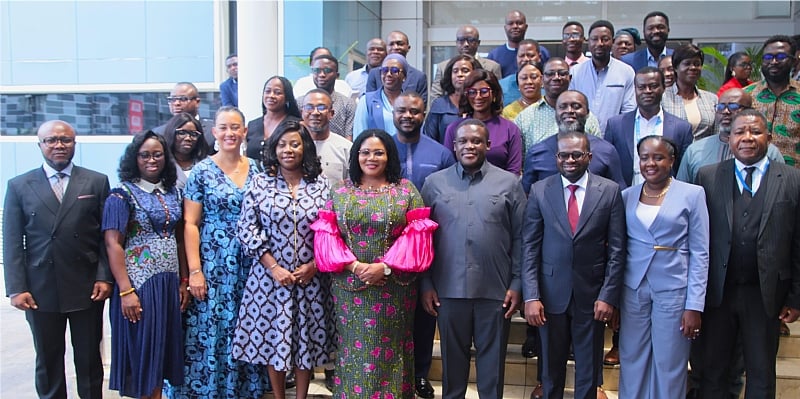The National Communications Authority (NCA) of Ghana convened its annual World Telecommunication and Information Society Day ceremony in Accra, focusing on the theme “Gender Equality and Digital Transformation.” This event served as a platform to underscore the vital role of information and communication technologies (ICTs) in global advancement, bridging the digital divide, and specifically, empowering women and girls within the digital realm. The NCA’s Acting Director General, Rev Ing. Edmund Yirenkyi Fianko, highlighted the organization’s commitment to improving the communications sector through collaborative policy implementation, emphasizing stakeholder feedback on spectrum allocation and data tariffs. He stressed consumer protection as a priority, focusing on service quality, billing accuracy, and complaint management, warning service providers of sanctions for neglecting consumer issues. Fianko also acknowledged challenges such as fibre cuts impacting service quality and urged public cooperation in identifying optimal telecommunication tower locations for improved coverage. A partnership with the Ghana Standards Authority was announced to establish standards for fibre optic cable deployment and enhance service reliability.
The Gender, Children, and Social Protection Minister, Dr. Agnes Naa Momo Lartey, addressed the increasing internet usage among women and girls, highlighting the opportunities and inherent risks, particularly cybercrime. She emphasized the importance of online safety and detailed government initiatives such as the National Cyber Security Centre and the National Safer Digital Campaign, aimed at creating a secure online environment. Dr. Lartey reaffirmed the government’s commitment to strengthening legal frameworks for online protection and advocating for collective efforts to ensure digital resources benefit women and girls in education and overall well-being. This focus on online safety is crucial for ensuring that increased digital access translates into positive outcomes for women and girls without exposing them to online threats.
The Minister for Communication, Digital Technology, and Innovation, Mr. Samuel Nartey George, echoed the call for digital inclusivity and the empowerment of women and girls. He reiterated the government’s support for initiatives like “Girls in ICT,” designed to equip young women with skills in science, technology, engineering, and mathematics (STEM). Mr. George underscored the historical systemic barriers hindering women’s participation in the digital economy and proposed a three-pronged approach: enhancing digital education and mentorship programs, expanding infrastructure and access to technology, and promoting women’s leadership in the digital sector. This multifaceted strategy aims to address the root causes of gender disparity in technology by providing the necessary training, resources, and leadership opportunities for women to thrive.
The NCA’s focus on stakeholder consultation, specifically regarding spectrum allocation and data tariffs, demonstrates a commitment to transparent and responsive policy-making. This collaborative approach is vital for fostering a healthy communications sector that caters to the needs of both consumers and service providers. By seeking input from industry players, the NCA aims to create a more efficient and effective regulatory framework, ensuring a balanced and sustainable ecosystem. The emphasis on consumer protection through initiatives like service quality monitoring and complaint management further strengthens the NCA’s commitment to a consumer-centric approach.
Addressing infrastructural challenges like fibre cuts and strategic tower placement is crucial for ensuring reliable and widespread connectivity. Public cooperation in identifying suitable tower locations is essential for expanding network coverage and improving service quality. This collaborative effort between the NCA and the public demonstrates a proactive approach to addressing coverage gaps and highlights the importance of community engagement in enhancing telecommunications services. The partnership with the Ghana Standards Authority to establish fibre optic cable deployment standards will contribute to long-term service reliability and minimize disruptions.
The emphasis on gender equality and digital transformation reflects a broader understanding of the importance of inclusivity in the digital age. Empowering women and girls through digital literacy programs, mentorship opportunities, and leadership roles is not only a matter of social equity but also a key driver of economic growth and development. By bridging the gender gap in technology, Ghana can unlock the untapped potential of its female population and create a more equitable and prosperous digital future. The government’s commitment to initiatives like “Girls in ICT” and the focus on online safety for women and girls demonstrate a holistic approach to digital inclusion. This involves not just providing access to technology but also ensuring a safe and supportive environment for women and girls to participate fully in the digital world. By addressing the systemic barriers that have historically excluded women from the digital economy, Ghana is taking crucial steps towards building a more inclusive and innovative digital landscape.














